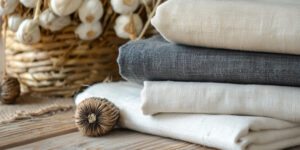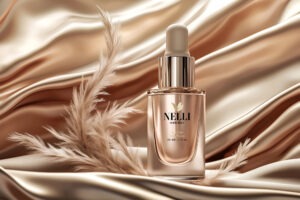
When it comes to feeling confident and fresh throughout the day, body odor can be a concern for many. Whether you’re heading to work, hitting the gym, or going out for a night on the town, what you wear can significantly impact how you smell. In this comprehensive guide, we’ll explore how the right clothing choices can help you reduce body odor, backed by science and expert tips.
Table of Contents
Understanding Body Odor: The Science
Body odor isn’t just about sweat—it’s about the bacteria that feed on sweat. When your body produces sweat, particularly in areas like your underarms, feet, and groin, it creates a moist environment where bacteria thrive. These bacteria break down sweat into acids, which produce the characteristic smell of body odor.

Key Factors That Contribute to Body Odor:
- Sweat Glands: Your body has two main types of sweat glands: eccrine and apocrine. Eccrine glands, found all over your body, produce a watery sweat that helps regulate body temperature. Apocrine glands, located in areas like the underarms and groin, produce a thicker sweat that is rich in proteins and fats—an ideal feast for bacteria.
- Clothing Material: The type of fabric you wear plays a crucial role in how much you sweat and how well your skin can breathe. Some materials trap moisture, creating a breeding ground for bacteria, while others allow for better airflow and moisture-wicking.
Choosing the Right Fabrics to Minimize Odor
One of the most effective ways to reduce body odor is by choosing the right fabrics. Here’s a breakdown of some of the best materials to wear if you’re concerned about body odor.

Natural Fabrics: Cotton, Linen, and Bamboo
- Cotton: A highly breathable fabric, cotton allows air to circulate around your body, helping to keep you cool and dry. It also absorbs moisture, which can prevent the buildup of sweat on your skin. However, be mindful that if cotton becomes saturated with sweat, it can start to smell if not changed regularly.
- Linen: Known for its lightweight and breathable properties, linen is another excellent choice. It wicks moisture away from the skin, keeping you dry and odor-free. Linen is also naturally antimicrobial, which means it can help inhibit the growth of odor-causing bacteria.
- Bamboo: Bamboo fabric is a newer option that has gained popularity for its moisture-wicking and antimicrobial properties. It’s soft, comfortable, and effective at keeping you dry and odor-free.
Moisture-Wicking Fabrics: Polyester, Nylon, and Merino Wool
- Polyester: Often used in athletic wear, polyester is designed to wick moisture away from your skin, helping to keep you dry during intense physical activities. However, it can also trap odors if not properly treated, so look for polyester fabrics with antimicrobial treatments.
- Nylon: Similar to polyester, nylon is a synthetic fabric that excels at moisture management. It’s durable, quick-drying, and often used in activewear. Many nylon fabrics are also treated to prevent odor buildup.
- Merino Wool: Unlike traditional wool, Merino wool is soft, breathable, and highly effective at regulating body temperature. It’s naturally antimicrobial, meaning it resists odors even after multiple wears. This makes it a great choice for both everyday wear and outdoor activities.
The Importance of Fit: Loose vs. Tight Clothing
The fit of your clothing can also influence body odor. Tight clothing, especially in areas prone to sweating, can trap moisture and create friction, leading to more sweat and odor. On the other hand, loose-fitting clothing allows for better air circulation, which can help keep you cooler and drier.

Tips for Choosing the Right Fit:
- Opt for Looser Tops and Bottoms: When possible, choose tops and bottoms that allow your skin to breathe. This is particularly important for areas like the underarms, chest, and thighs.
- Consider Ventilated Designs: Look for clothing with ventilation panels or mesh inserts in high-sweat areas. This feature is often found in athletic and outdoor wear, helping to enhance airflow and reduce moisture buildup.
- Layer Wisely: Layering can help manage sweat and odor by allowing you to adjust your clothing as needed throughout the day. Start with a moisture-wicking base layer to keep sweat off your skin, and add breathable outer layers that allow for ventilation.
The Role of Antimicrobial Treatments in Clothing
Many modern fabrics are treated with antimicrobial agents that help reduce the growth of odor-causing bacteria. These treatments can be especially beneficial for activewear, underwear, and socks, where sweat tends to accumulate.
Types of Antimicrobial Treatments:
- Silver Ions: Silver has natural antimicrobial properties and is commonly used in fabrics to inhibit bacterial growth. Silver-ion treatments can effectively reduce odors in clothing, making it a popular choice in athletic and performance wear.
- Copper: Similar to silver, copper also has antimicrobial properties and is sometimes used in fabrics for its odor-reducing benefits.
- Zinc Oxide: Another antimicrobial agent, zinc oxide, is often used in natural and eco-friendly fabrics to prevent the growth of bacteria and fungi.
Practical Tips for Managing Body Odor with Clothing
While choosing the right fabrics and fits is essential, there are other practical steps you can take to minimize body odor through your clothing choices.
1. Change Clothes Regularly
- Wearing the same clothes for extended periods, especially if you’ve been sweating, can lead to odor buildup. Make it a habit to change into fresh clothes after workouts or long days.
2. Wash Clothes Properly
- Proper laundering is crucial for removing bacteria and odors from your clothing. Use an antibacterial laundry detergent or add white vinegar to your wash cycle to help eliminate stubborn odors.
3. Use Odor-Neutralizing Products
Consider using odor-neutralizing products to keep your clothing fresh throughout the day, but for the most effective and lasting results, choose Nelli Neutralizer Anti Odor Serum.
Unlike deodorant powders or sprays that only mask odors or require frequent reapplication, Nelli Neutralizer works at the source. Its advanced formula neutralizes odor-causing bacteria on contact, providing long-lasting protection and keeping you fresh all day without the need for constant touch-ups.
4. Consider Breathable Footwear
- Don’t forget your feet! Wearing breathable shoes and moisture-wicking socks can prevent foot odor, which is another common concern.
Feel Confident and Fresh Every Day
By making informed clothing choices and taking proactive steps to manage sweat and bacteria, you can significantly reduce body odor and feel more confident in your daily life. Remember, it’s not just about what you wear but how you wear it—selecting the right fabrics, fits, and treatments can make all the difference. Stay fresh, stay confident, and embrace every moment with the peace of mind that comes from knowing you’ve got body odor under control.




